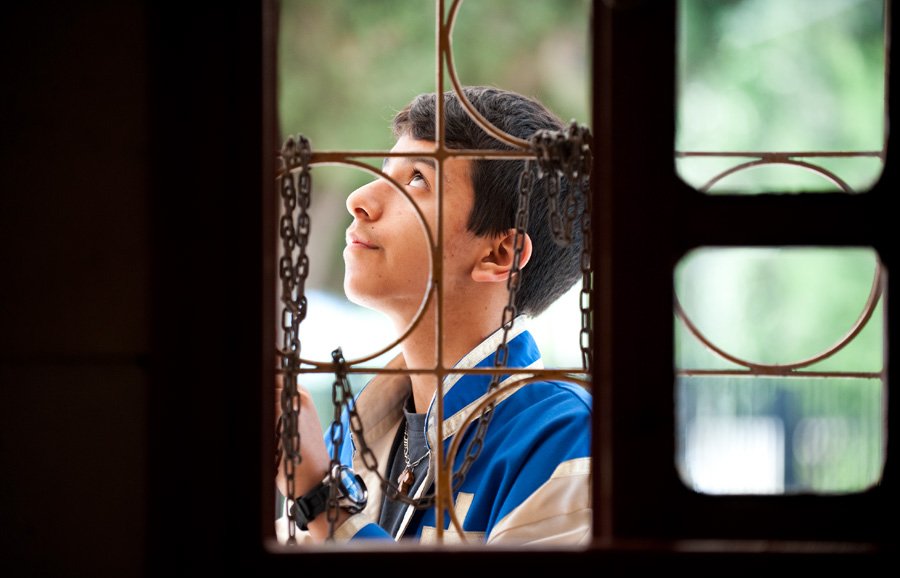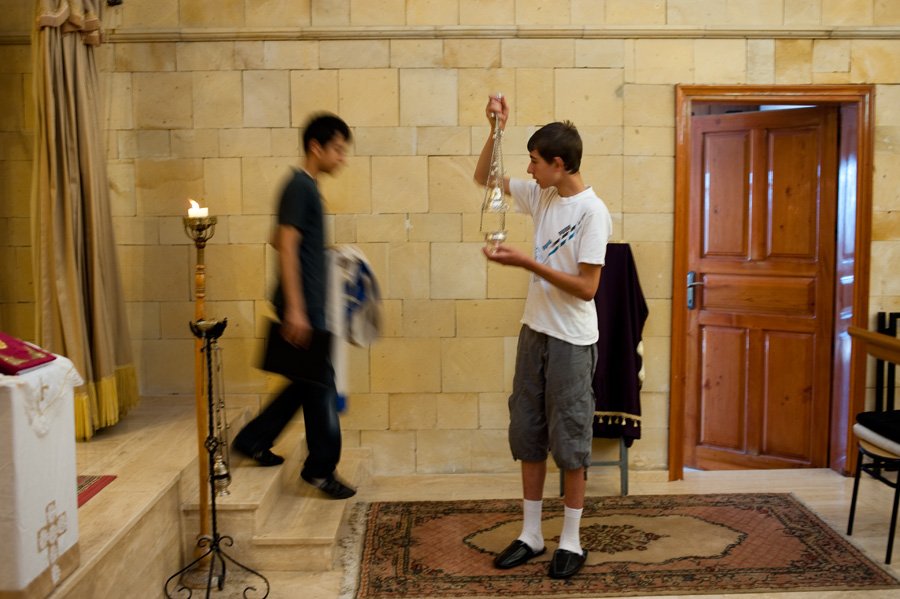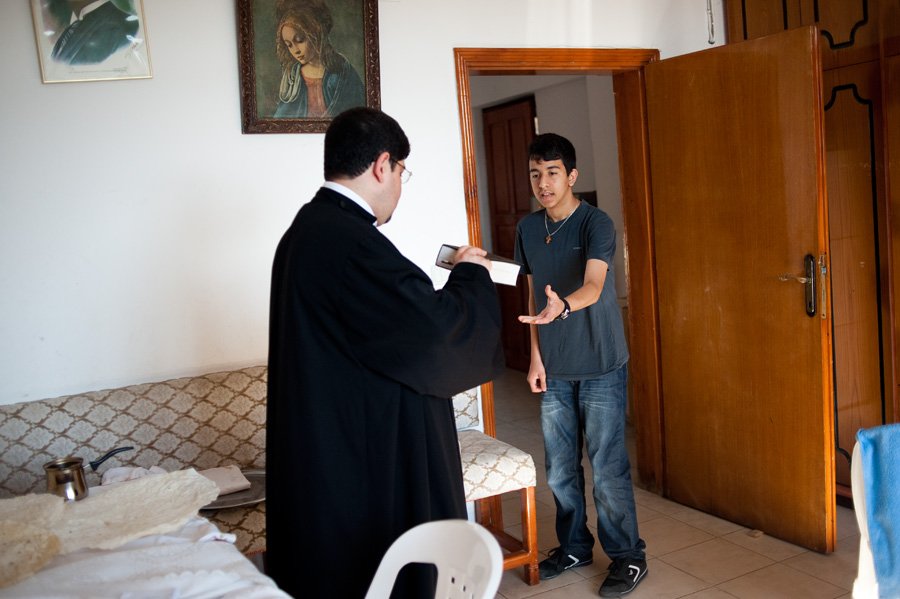 Aren rings the church bell.
Aren rings the church bell.
 Aren (left) and Aram Manca (right) prepare the church sanctuary for the morning’s service.
Aren (left) and Aram Manca (right) prepare the church sanctuary for the morning’s service.
 The village priest, Avedis Tabaşyan, hands Aren Kuş, one of the altar boys, a Bible during the preparations for the Sunday service.
The village priest, Avedis Tabaşyan, hands Aren Kuş, one of the altar boys, a Bible during the preparations for the Sunday service.
The only sound in the empty church is the whirring of the air conditioner. A door to the right opens, and two boys dressed in tan robes trimmed in blue and gold enter. Both are just on the edge of adolescence, tall and gawky and self-conscious. They stand in front of a wrought-iron altar and open black plastic notebooks. The boy on the right, with dusky skin and dark hair and eyes, opens his mouth to sing. The sound that emerges is clear and bright, an expression of song and faith.
Aren Kuş, 14, has been an altar boy for the past four years. He took classes, he explains, that were offered to the children of Vakıflı by visiting priests.
“I love [being an altar boy],” he says shyly.
He grew up just down the street from the church, and his parents, Harutyun and Janet, and grandparents, Sirop and Siruhi, are frequent attendees. On this Sunday morning, as the church bell sends peals up and down the blocks of the village, Aren’s mother and grandmother filter into the church. He concentrates on the rituals and pretends not to see them.
His ability to focus and his determination have helped him outside of his faith, he says later, after having changed out of his robe into jeans, a T-shirt and sneakers.
“I make small goals for myself. I want to go to a good high school and get a good job.”
He recently took his high school entrance exams, and he’ll find out the results in a month. He’s praying to get placed in an Anatolian school, where the language of instruction is English.
But, like any teenager, his ambitions beyond high school are a little vague. He hasn’t settled on a specific career, unlike his siblings; his older brother, Sirop, works at a hardware store for Bedros, another villager, in Samandaǧ, and his sister, Dalida, is studying science education at a university in Mersin.
For the time being, Aren likes to work his mind and rest his body. He loves to read, he says, and has a well-thumbed copy of Jostein Gaardner’s “Sophie’s World: The Greek Philosophers” at home. He also likes to sleep, dreaming through the hottest part of the day.
When asked, however, if he would ever consider being a priest, Aren has an answer.
“Could be,” he says with a shrug and smile.
As the church empties itself of congregants, Aren stays behind, chatting and laughing with the young priest, Avedis. He then bids goodbye, waving to his mentor and his place of worship before heading down the steep hill home. He’s ready for lunch and a nap.